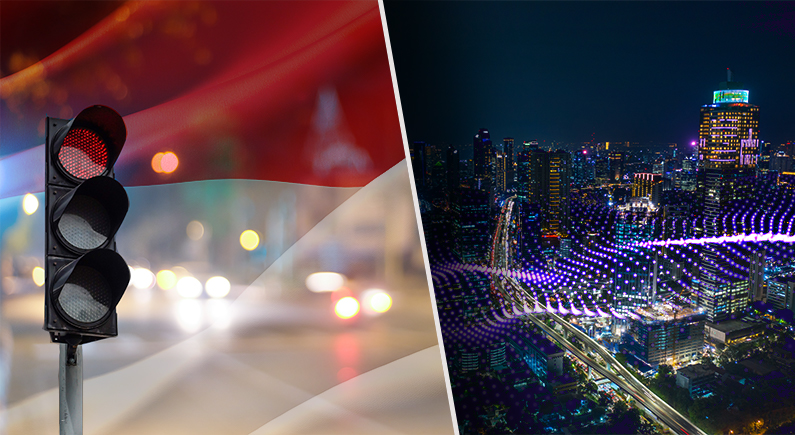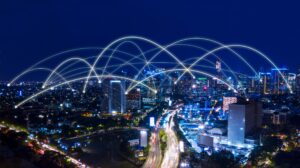Jakarta tackles dire traffic congestion with AI traffic lights

The Indonesian capital, Jakarta, has inaugurated the use of artificial intelligence (AI) to solve the dire traffic congestion issue in Southeast Asia’s largest city.
This attempt to tackle the ever-pressing issue has come in the form of 20 AI-powered traffic lights installed by the Jakarta Transportation Agency with the technical assistance of Google.
Functionality and capabilities
These traffic lights use AI and machine learning to analyse optimal green light duration based on the number of vehicles passing through. The lights then calculate the time required to move from one traffic light to the next.
These lights possess enough power to prioritise vehicles, giving way to public transportation first.
This task has traditionally been executed through the manual input of an officer but in yet another example of AI integration this will now be carried out by algorithms in real-time.
Early successes
The Head of the Jakarta Transportation Agency, Syafin Liputo, has claimed that these traffic lights have been an undoubted success, seeing improvements in traffic flow at several intersections across the city.
This positive outcome has meant that 40 more traffic lights of this nature are in the agency’s near-future plans.
The severity of congestion

The transportation agency will be holding its breath to see these AI traffic lights be as monumental a solution as possible due to the sheer severity of the traffic flow issues in the capital city.
A simply staggering 22 million motorised vehicles travel the Indonesian metropolis roads every day with millions more entering and egressing from the surrounding satellite cities daily.
Dutch technology giant TomTom ranked Jakarta 4th in the world for most congested cities. This saw an inevitable downturn, reaching the rank of 46th, due to the Covid-19 pandemic. However, since the lifting of mobility bans, congestion has seen a return to Jakarta’s pre-pandemic congestion rate.
Alternative Strategies
Despite the early success of these AI-powered traffic lights, the authorities have sensibly chosen to gravitate towards a more diverse strategy to solve this severe issue.
32 U-terns have been closed, along with the suggestion of commencing morning routines and work schedules at 2 distinct times, those being 8 am and 10 am.
Criticisms and further course of action
Gembong Warsono, a city councillor from the Indonesian Democratic Party of Struggle, has stated the vital importance of comparing congestion levels prior and subsequent to the installation of the new traffic lights before the allocation of more public funds to the project.
He stated:
The agency should open the data to the public. If the project is not effective, they should implement other innovations and work together with related institutions to solve the traffic problem.
Furthermore, numerous transportation experts have even before the AI installations, stressed that traffic engineering solutions of this and a similar nature are nothing more than a stopgap.
Solutions such as the improvement of public transit systems, increase in satellite cities, tough road administration policies and higher parking fees have been suggested as projects that could have a far more potent, long-term effect.
AIBC Asia
The next destination for the industry leading summit is the storied capital of the Philippines, Manila. AIBC Asia will be bringing unparallel expertise and a plethora of premium networking opportunities from across the globe to the iGaming and emerging technologies metropolis on the 19th to 22nd of July, 2023.






